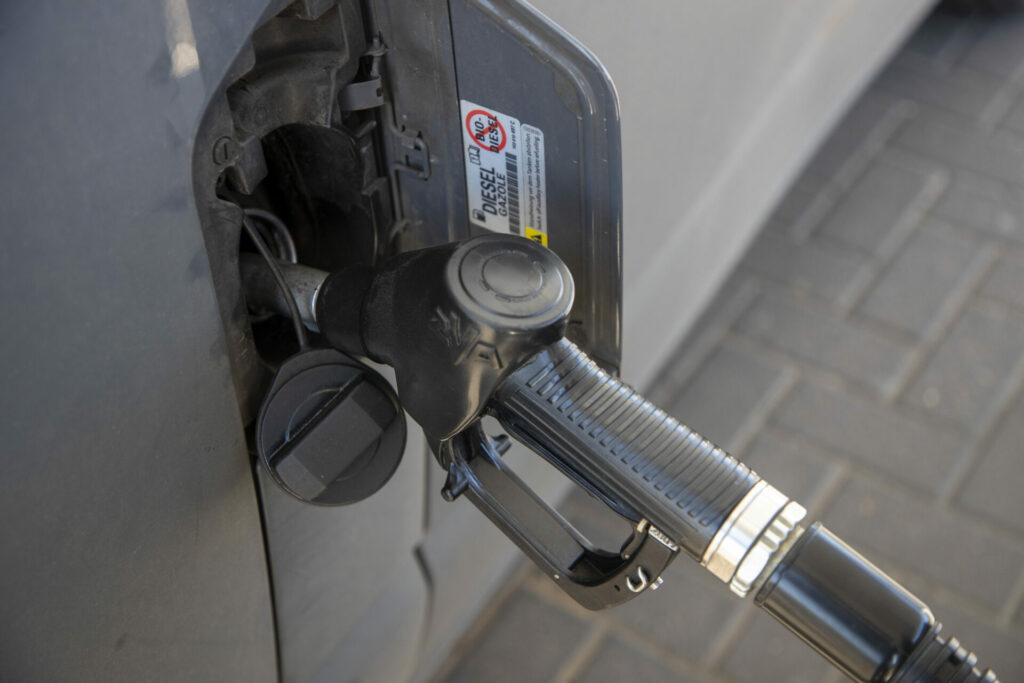Diesel is expensive, which has many tempted to save a few euros on a full tank at a cheap service station. But this may be a false economy, automotive technology expert Mark Pecqueur tells VRT News.
"Cheap diesel often contains fewer or no additives, which increases the risk of engine contamination." This is especially the case if you drive a heavy diesel car and often travel short distances. "Expensive fuel brands often put in additives which cheaper brands do not. Without them, engines pollute much more."
There is an official standard within the European Union. "All fuels sold by filling stations in the EU must comply with this," Pecqueur explained. "For diesel, it is specifically about the 'EN590' standard, which guarantees the minimum quality. This is also monitored so that you can refuel safely everywhere."
But that standard hardly mentions anything about additives, "Producers are therefore free to decide whether or not to add them. In practice, it is often the more expensive premium brands that add extra additives to diesel."
The importance of additives in fuel
According to Pecqueur, expensive fuels to which additives have been added are of better quality. "That fuel is indeed more expensive. But we tested it in our lab, and it shows that you use less of it."
He cited the example of Total Excellium: "That type of diesel is 8 to 10% more expensive at the pump, but according to our research it results in consumption that is 3 to 5% lower. Cars on Excellium also have lower CO2 emissions."
In addition, the additives also have an effect inside the engine. "They ensure that less soot formation occurs when the engine is at a low temperature," Pecqueur said. "That has a positive effect on your emissions, and therefore also on the soot test at the car inspection."
Soot is a big problem with some diesel cars. "It's a form of pollution that accumulates in the engine," Pecqueur said. "And it's often the result of our urge to drive a heavy car."
When the engine reaches a high temperature, combustion is better. "You have less chance of soot formation anyway," said Pecqueur. "But there is a problem: the engines of many contemporary diesel cars are far too powerful. Take a Volkswagen Touran, for example, which has 150 HP, while 30 HP is actually enough to drive 120 kilometres per hour on the highway."
The result is that many diesel cars never run at full power. "As a result, the engine never reaches the ideal operating temperature. The fuel doesn't burn completely, and the soot accumulates," Pecqueur explained. "The risk is therefore mainly with diesel cars with a heavy engine, which mainly travel short distances. The more modern your car, the more sensors are built in. So, the greater the sensitivity to soot formation. In that case, it is certainly useful to fill up with diesel to which additives have been added, because they ensure cleaner combustion."
Pecqueur pointed out that you can also add additives yourself: "Then you can fill up with cheaper diesel at the pump. But you do have to pour an additive every two refuellings, and that also costs money. It remains to be seen whether that will be cheaper."
Additives are also often added to petrol. "But they are very different from diesel," said Pecqueur. "With gasoline, they are also less important, because it is a much shorter molecule that ignites more easily."
Related News
- Driving electric cars in the energy crisis raises questions over affordability
- EU to ban diesel and petrol cars from 2035
Nevertheless, according to Pecqueur, it is in some cases advisable to opt for gasoline with additives. "If you travel very few kilometres and only refuel every few months, you better fill up with high-quality fuel. If your car is equipped for this, it is better to choose Euro 98. That's because there is more bioethanol in Euro 95, which degrades faster."
How do you know if additives have been added to fuel? "Unfortunately, that is not always obvious," Pecqueur concluded. "At the pump itself, it is almost impossible to find out. But you can usually find it on the producer's website."

